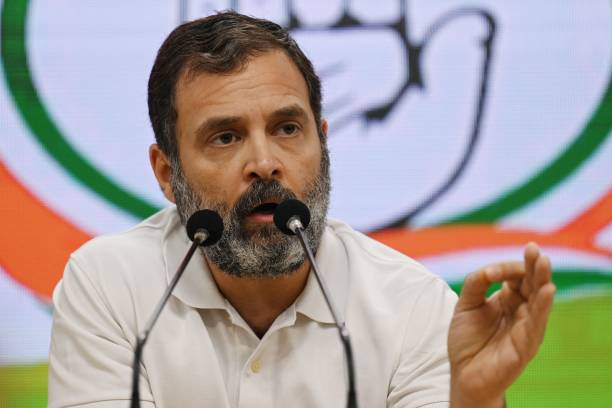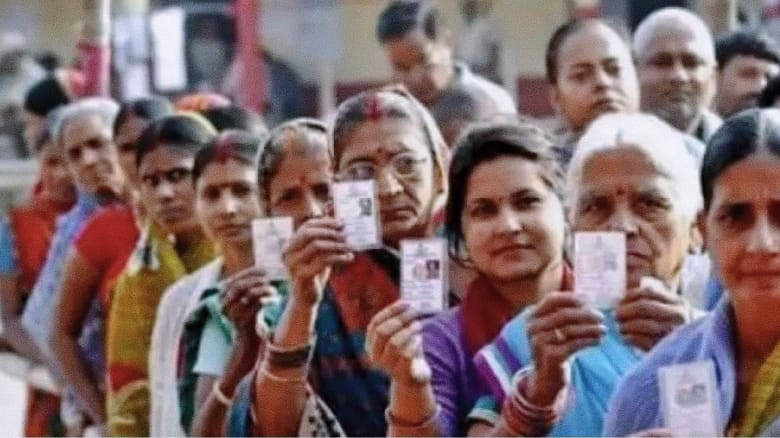Prime Minister Narendra Modi’s diplomatic engagements have gained widespread attention, particularly after his recent visits to Ukraine and his calls with U.S. President Joseph Biden and Russian President Vladimir Putin. These high-level interactions, combined with his travel to Kyiv and Moscow, have sparked speculation about New Delhi’s potential role in mediating peace between Russia and Ukraine amidst the ongoing conflict. However, there has been no official confirmation from the Indian government regarding any such initiative.
Modi’s diplomatic efforts took center stage after his three-day visit to Ukraine, where he met with Ukrainian President Volodymyr Zelenskyy. Following this, Modi held a conversation with U.S. President Biden, briefing him on the situation in Ukraine and sharing insights from his interactions with President Zelenskyy. The discussions between the two leaders, according to a White House readout, revolved around “shared concerns” regarding global security and the ongoing Russia-Ukraine war. President Biden praised Modi for his historic visits to Ukraine and Poland and expressed appreciation for India’s continuing humanitarian support to Ukraine, particularly in the energy sector. The White House statement highlighted their shared commitment to a peaceful resolution to the conflict, grounded in international law and the UN Charter, though it did not confirm any specific Indian peace proposal.
Simultaneously, Modi engaged in dialogue with Russian President Vladimir Putin, reaffirming his participation in the upcoming BRICS summit, scheduled to take place in Kazan, Russia, in October 2024. According to the Kremlin’s readout of the conversation, Modi briefed Putin on his recent visit to Kyiv and underscored India’s dedication to resolving the conflict through political and diplomatic means. Putin, in turn, provided his assessment of Ukraine’s policies, blaming the West for its role in perpetuating the conflict. The discussion also touched upon the implementation of the recent economic agreements between India and Russia, further cementing the economic cooperation between the two nations.
Modi’s recent travels and dialogues have spurred rumors about India possibly stepping up as a mediator between Moscow and Kyiv, but Indian officials have remained tight-lipped on the matter. In the wake of his Ukraine visit, when asked about any Indian-led peace initiative, External Affairs Minister S. Jaishankar refrained from making definitive statements, merely indicating that any productive exercise would require engagement with all concerned parties, including Russia.
The U.S., for its part, expressed cautious optimism about the possibility of India playing a constructive role in mediating the conflict. U.S. National Security Communications Advisor John Kirby noted that the U.S. would welcome any country willing to contribute to a peaceful resolution, emphasizing the importance of aligning with Ukrainian President Zelenskyy’s peace proposal. This approach suggests that while India’s peace efforts are not officially acknowledged, they are viewed with interest by international observers.
As for President Zelenskyy, during his interactions with the Indian media, he mentioned that India was among the Global South nations he had suggested as a possible venue for the next Burgenstock Peace Summit. This summit, which was first held in June 2024, aimed at fostering dialogue on the ongoing conflict. Zelenskyy, however, remarked that hosting the summit could be complicated for a country that had not signed on to the communiqué from the first summit, indirectly referencing India.
India’s engagement with both Russia and Ukraine reflects its unique position in global diplomacy. Historically maintaining close ties with Russia while fostering partnerships with Western nations like the U.S., India’s stance on the Russia-Ukraine war has been one of balance. It has refrained from openly criticizing Moscow but has emphasized dialogue and diplomacy as essential tools for resolving the conflict. This nuanced approach allows India to navigate the complex geopolitics of the situation, positioning itself as a potential peace broker without jeopardizing its relations with either side.
At the BRICS summit in Kazan, Modi’s engagement with world leaders, including Putin, is expected to focus on strengthening cooperation among BRICS nations in trade, security, and development. While the summit’s primary agenda may not be centered on the Russia-Ukraine war, Modi’s recent interactions with global leaders, combined with his proactive diplomatic outreach, suggest that discussions about the conflict may take place on the sidelines.
India’s diplomatic endeavors in the Russia-Ukraine war, while still unfolding, underscore its growing role on the global stage. Modi’s engagements with Biden and Putin demonstrate his commitment to advancing dialogue and diplomacy as tools for conflict resolution. Although India has yet to formalize a peace initiative, its sustained efforts to engage with both sides of the conflict highlight its strategic positioning as a potential mediator in the future.
As the international community looks towards India’s next steps, Modi’s recent diplomatic moves signify a deliberate attempt to assert India’s role in global peace efforts while maintaining its own national interests. This balancing act, coupled with India’s historical ties to both Russia and Western nations, places New Delhi in a unique position to contribute meaningfully to the resolution of one of the most critical conflicts of the 21st century. Whether or not India takes on a more formal mediating role remains to be seen, but its ongoing diplomatic outreach signals a readiness to play a part in the peace process if and when the opportunity arises.




